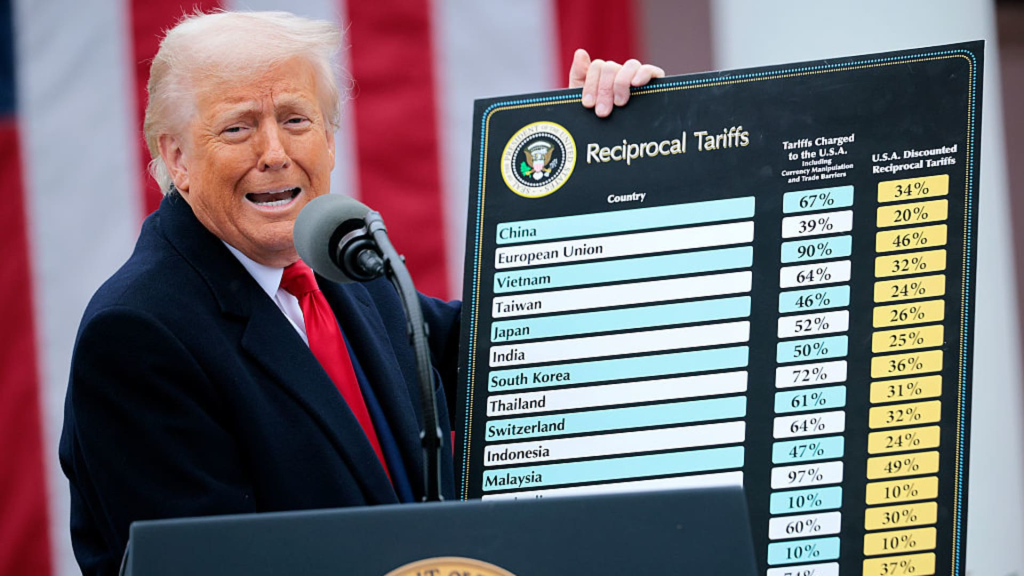A federal court is scheduled to hear arguments on Tuesday in a case questioning the legality of President Donald Trump’s recently enacted tariffs, raising significant issues related to his economic policies.
The U.S. Court of International Trade, consisting of a panel of three judges, will examine whether Trump overstepped his authority when he imposed harsh tariffs affecting over 180 countries and territories last month.
If the judges rule in favor of the plaintiffs, it could severely limit Trump’s capacity to impose import taxes unilaterally, a strategy he has frequently utilized to assert executive power.
The court proceedings, taking place in Manhattan, will be available for public viewing through a livestream beginning at 11 a.m. ET.
This lawsuit, filed in mid-April, comes from five U.S. businesses that argue they depend on imported goods that cannot be sourced domestically.
In their legal argument, the plaintiffs contend that the International Emergency Economic Powers Act (IEEPA) — invoked by Trump in April to impose his global “reciprocal” tariffs — does not grant the president the authority to impose such broad tariffs.
While the law allows the president to regulate or ban imports during a national emergency, it does not specifically mention the imposition of tariffs, as noted by the Congressional Research Service.
The plaintiffs assert that the “national emergency” declared by Trump to justify these actions is unfounded. They argue that “trade deficits, which have persisted for decades without causing economic harm, are not an emergency,” as stated in their complaint.
The plaintiffs are seeking an injunction against Trump’s April 2 executive order and are also pursuing damages related to the tariffs enacted under the disputed orders.
The Department of Justice has countered that the IEEPA “clearly” provides the president with the authority to impose tariffs.
In a brief opposing the lawsuit, DOJ lawyers argue that “through IEEPA, Congress lawfully delegated to the President authority to regulate importation through the imposition of tariffs under specified circumstances.”
The Liberty Justice Center, representing the plaintiffs, emphasizes that the U.S. Constitution grants Congress — not the president — the authority to levy taxes and collect revenues.
While Congress has historically conferred some tariff authority to the president, the lawsuit challenges the constitutionality of allowing such unilateral action. The plaintiffs contend that granting the president the power to impose global tariffs at his discretion constitutes an unconstitutional delegation of legislative authority.
President Trump, known for his protectionist stance and focus on trade negotiations, has long heralded tariffs as essential tools for both foreign relations and revenue generation. However, he has also temporarily reduced many tariffs in response to turbulent market conditions and growing concerns among businesses and consumers.
Just a week after the announcement of the reciprocal tariffs, he modified the rates to a standard 10% for 90 days on most countries, excluding China. Furthermore, on Monday, the U.S. and China agreed to a 90-day pause in tariff increases while discussions continue regarding trade relations.
This is developing news. Please check back for updates.


























